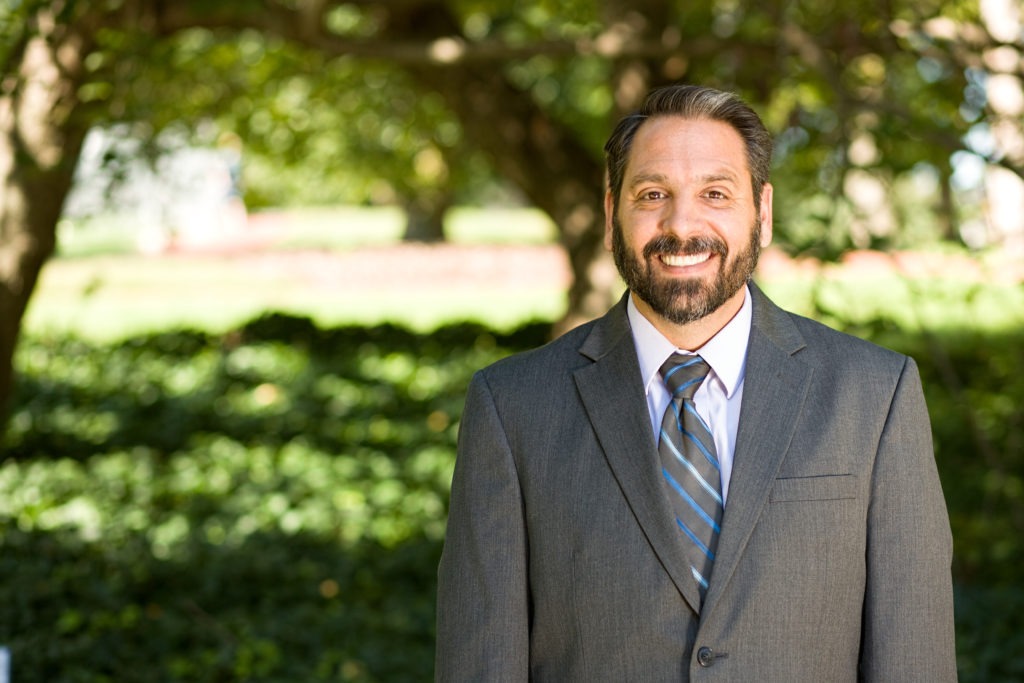Eagles in Recovery program receives $50,000 grant
4 min read
Hunter Rauscher, founder of Eagles in Recovery, hopes to use the program's new grant to expand services. / UMW Website
By ABIGAIL BUCHHOLZ
News Editor
The UMW Eagles in Recovery program was awarded the “Expanding Collegiate Recovery in Virginia” grant, valued at $50,000.
Hunter Rauscher, associate director for Residence Life and Housing, founded the Eagles in Recovery program.
The awarded grant will help Eagles in Recovery expand their programming. The grant will be spread out over the next two years. According to Rauscher, the first year will be dedicated to expanding upon and establishing basic services to improve the experience of students in the program.
Rauscher plans on using a portion of funds to outfit the Clubhouse, a communal place in the Link for those in recovery, with improved furniture and amenities. The Clubhouse is open to students in the Eagles in Recovery program from Wednesday at noon till Monday mornings at 8 a.m.
“If their friends are going out and trying to go drinking or maybe there is active drug use going on and they feel uncomfortable about it they have a place where they can go. There’s an Xbox, there’s a Keurig, so it’s just kind of a hang-out so it just gives them that safe place,” said Rauscher.
Some of the funds might also be invested in providing snacks, such as donuts and coffee, for the various meetings the program sponsors.
Rauscher explained that there is a greater significance to the addition of donuts and coffee to the meetings held at the Clubhouse than meets the eye.
“What’s kind of interesting about it is it’s kind of a service component. Somebody has to go get the coffee and donuts, which means they have to show up early, there’s some kind of routine. There is responsibility there, and sometimes people going into Eagles in Recovery need that responsibility and that’s why it services one of the pillars of AA or NA,” said Rauscher. Alcoholic Anonymous (AA) and Narcotics Anonymous (NA) are groups for recovering addicts. Al-Anon and Nar-Anon, two groups that also have meetings within the Eagles in Recovery program, are for family and friends of those in active addiction or recovery.
Rauscher also envisions the grant assisting in strengthening the connection between Eagles in Recovery and local treatment centers. He hopes that students struggling with addiction on campus will have the option to participate in intensive outpatient programs (IOPs) at these treatment centers.
These IOPs are designed so that the students can continue with their classes or jobs while recovering. Then, after finishing the IOP program, the local centers would reconnect students with Eagles in Recovery and other on-campus resources.
“Ideally, it would be a seamless transition from deciding to get help all the way through the recovery through the rest of their time at college,” said Rauscher.
The grant money could also be spent on the general education of UMW students through tabeling or poster campaigns in order to increase students’ awareness of substance disorders.
“It’s just like any of our mental health disorders and health issues that we have on college campuses,” said Rauscher. “I think that’s one of the things that helped me to understand it as a disorder and not just some sort of moral failing. I think there’s kind of a lot of power in that, so educating students with that I think would go a long way.”
Alicen Hackney, a senior journalism major, serves as an Al-anon and Nar-anon group leader.
“My hope with the grant is that we’ll be able to accommodate students who need these meetings and fellowship in better ways,” she said. “I would love to reach out to the community in bigger ways and be able to help students better access off campus resources they may need.”
According to Rauscher, the expansions to the Eagles in Recovery program are a reflection of broader national trends of addiction.
“We know that the trends are showing that there is an increase all across the country of people going into recovery or in active addiction,” said Rauscher.
Weekly NA/AA meetings at the Clubhouse are planned to take place on Wednesdays from noon – 1 p.m. Peer Recovery meetings will occur on Thursdays from 3 – 4 p.m. in the Link. There will also be Al-Anon/Nar-Anon meetings on Thursdays from 3 – 4 p.m. in the HCC 413.
“In meetings we open with basic information about anonymity and the safety and inclusion of participants, then we spend most of the meeting with an open floor for everyone to share about their experiences in their journeys dealing with these issues,” said Hackney.
“This kind of overwhelming support that’s been thrown our way by the students and the faculty and staff so it’s been great,” said Rauscher.
Kate Seltzer and Tala Saleh contributed to reporting for this article.


